We love spices here at Elevated. Not only do they make food taste amazing, but most of them have fabulous functionality when it comes to how they can help our overall health too.
Here, our nutritionist James runs through the health benefits of spices you need to add to your daily menu.
Anice/aniseed
Anise seed is a powerful spice that is rich in many nutrients and boasts a wide array of health benefits. It has anti-fungal, antibacterial and anti-inflammatory properties and may fight stomach ulcers, keep blood sugar levels in check and contributes towards improve brain function, which studies have shown has reduced symptoms of depression and menopause. View the range of menopause recipes from Elevated here.
It has a sweet, aromatic taste that resembles the taste of black liquorice. It is commonly used in alcohols and liqueurs, such Pernod and ouzo.
Asafetida
A gum extracted from ferula – a member of the celery family. Don’t let the smell (a little like boiled eggs) put you off. A pinch of this yellow powder seems to accentuate all other spices in Indian cuisine.
Used as a medicinal food in Iran and as an aphrodisiac food elsewhere, ferula has antioxidant and anti-inflammatory properties
Black pepper
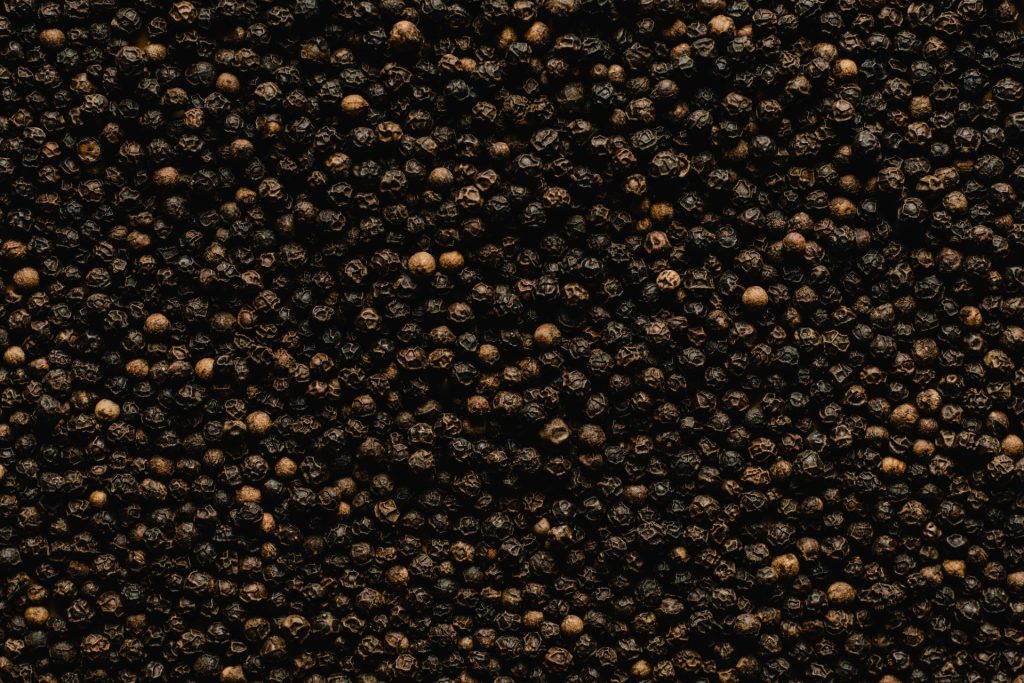
Piper nigrum to give it its proper name comes from a flowering vine that is cultivated for the peppercorns.
Piperine is the active ingredient that makes black pepper such a nutritional powerhouse. It is said to have antioxidant properties and may help balance blood sugars, lower cholesterol and even fight cancer.
It’s also a potent anti-inflammatory, especially when combined with turmeric.
Caraway seeds
Caraway, also known as meridian fennel and Persian cumin, is a member of the carrot family, with finely divided, feathery leaves at the top. The seeds add a warm, woody, almost liquorice flavour to dishes. A great source of minerals like iron, copper, calcium, potassium, manganese, selenium, zinc and magnesium, caraway seeds possess antioxidant, digestive and anti-flatulent properties.
Cardamom
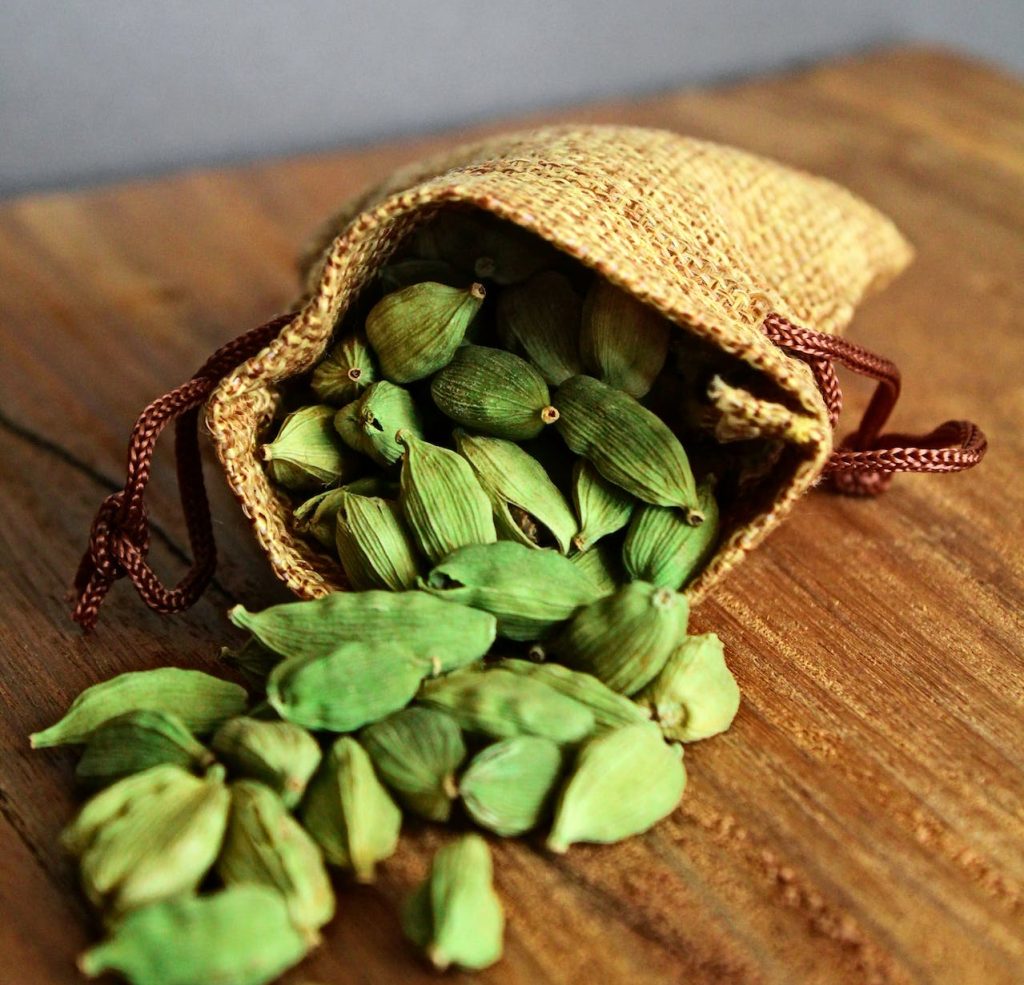
Cardamom is a spice made from the seed pods of various plants in the ginger family.
The seeds, oils and extracts of cardamom are thought to have impressive medicinal properties and have been used in traditional medicine for centuries.
Adding a slight minty flavour, cardamom may lower blood pressure, improve breathing and aid weight loss, while animal and test-tube studies show it may fight tumours, improve anxiety, fight bacteria and protect the liver. Consuming blueberries with cardamom has been shown to almost double production of cancer-fighting immune cells called Natural Killer Cells.
Cassia bark
Chinese cassia or Chinese cinnamon, originates in southern China, and is widely cultivated there and elsewhere in South and Southeast Asia.
A member of the cinnamon family, it has a stronger, more pungent flavour than its milder cousin, Ceylon Cinnamon – though it is cheaper to buy and many believe it is a lower quality than its cousin. It is thought to help improve insulin sensitivity and may act as an anti-bacterial.
Cayenne pepper
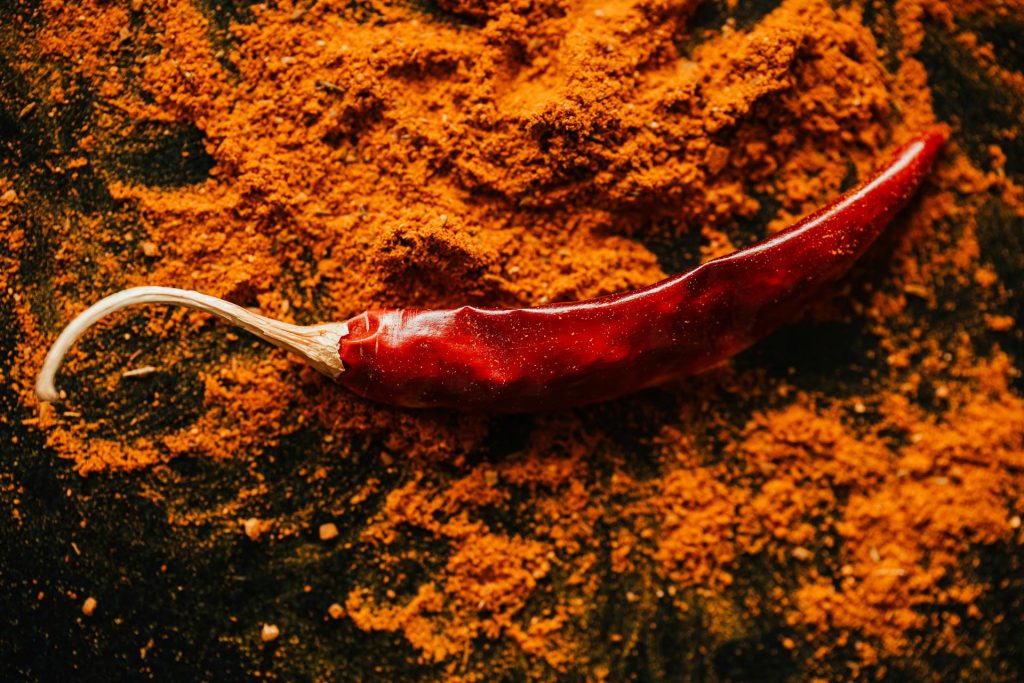
Cayenne pepper is a form of chilli powder that is pretty hot and used to add fiery spice to a dish. Just one teaspoon provides almost half the daily recommended amount of vitamin A, while it has good levels of vitamin E and vitamin C too.
Studies show it can help boost metabolism by up to 20% for two hours and may reduce cravings, which could help with weight management. It has also been shown to improve digestion and lower pain, while it may also help reduce blood pressure.
Celery seeds
It’s the stalk of the celery plant we eat mainly in salads, but the seeds are still tasty and high from a nutritional standpoint. Small, light brown and with an earthy scent, they lend both warmth and a little bitterness to dishes.
In the east, they have been used for thousands of years to treat a variety of ailments such as bronchitis, skin disorders and influenza. A good source of calcium, manganese, and iron, the former two are important minerals for bone health, while the latter is needed for red blood cell formation.
Crushed chillies
A blend of cayenne and milder chillies such as jalapeno and ancho, chilli flakes tend to add milder heat than cayenne pepper alone, but the functional properties are very similar.
Cinnamon
Made from the inner bark of the cinnamomum, the distinct smell and flavour of Ceylon or ‘true’ cinnamon comes from the oily part which is very high in a compound called cinnamaldehyde that is thought to give the spice its health-giving properties.
Once so revered it was used as a gift for kings, it could well be called the king of spices. In a study of the antioxidant activity of 26 spices, cinnamon outranked superfoods such as garlic and oregano and came out the clear winner.
A potent anti-inflammatory, it can help lower blood sugar levels, improve insulin sensitivity and may cut the risk of heart disease and high blood pressure.
Cloves
Cloves are the flower buds of the clove tree, an evergreen also known as syzygium aromaticum. This versatile and distinctive spice can be used to season and add warmth to biscuits, cookies and cakes and to season dishes such as stews and pot roasts.
Another spice high in antioxidants, cloves have strong antibacterial properties that support the immune system and may help regulate blood sugars
Coriander
Coriander, also known as cilantro or Chinese parsley (both when in plant form), has a tart lemon/lime taste and is used to freshen up many of our dishes either just before the cooking ends or stirred in when the dish is off the heat.
Its seeds are dried and can be found whole or ground (we recommend buying whole and grinding yourself). It is rich in antioxidants that boost the immune system and has been shown to potentially have many benefits, including blood sugar regulation, as a digestive aid and to help boost heart health and brain and memory function.
Cumin
Like coriander, cumin can also be found in ground and whole form. Earthy, nutty, spicy and warm, it adds distinctive flavour to curries and chilli. Used from antiquity as a digestive aid, research is showing an increasing number of other potential health benefits, including relief from IBS symptoms and weight loss, as well as an antimicrobial in the gut.
Fennel
Indigenous to the shores of the Mediterranean and known in Greek as marathos, fennel gives its Greek name to the coastal town of Marathon from which the famed race distance originates.
Its green/light-brown seeds have a sweet liquorice-like taste and are used in many Greek and Middle Eastern recipes.
The essential oil of the seeds contains 87 compounds, which offer up impressive health benefits. The compounds include the polyphenol antioxidants rosmarinic acid, chlorogenic acid, quercetin, and apigenin – all of which have potent anti-inflammatory effects and my help fight chronic diseases such as heart disease, obesity, cancer, neurological diseases and type 2 diabetes.
Fenugreek
Similar to clove and native to the Mediterranean, southern Europe and western Asia, Fenugreek seeds smell and taste similar to maple syrup and uses include relief from diabetes, menstrual cramps and high cholesterol. It is also considered a potential aphrodisiac.
Galangal root
Galangal root is a spice closely related to ginger and turmeric and used extensively in both Ayurvedic and traditional Chinese medicine, where it is believed it can help treat infections, reduce inflammation, boost male fertility, and even fight different types of cancer.
Test tube studies suggest it may have powerful antimicrobial qualities in the gut – it has been shown to kill potentially harmful bacteria, including E. coli, Staphyloccocus aureus, and Salmonella Typhi, making it a great support to the immune system.
Ginger
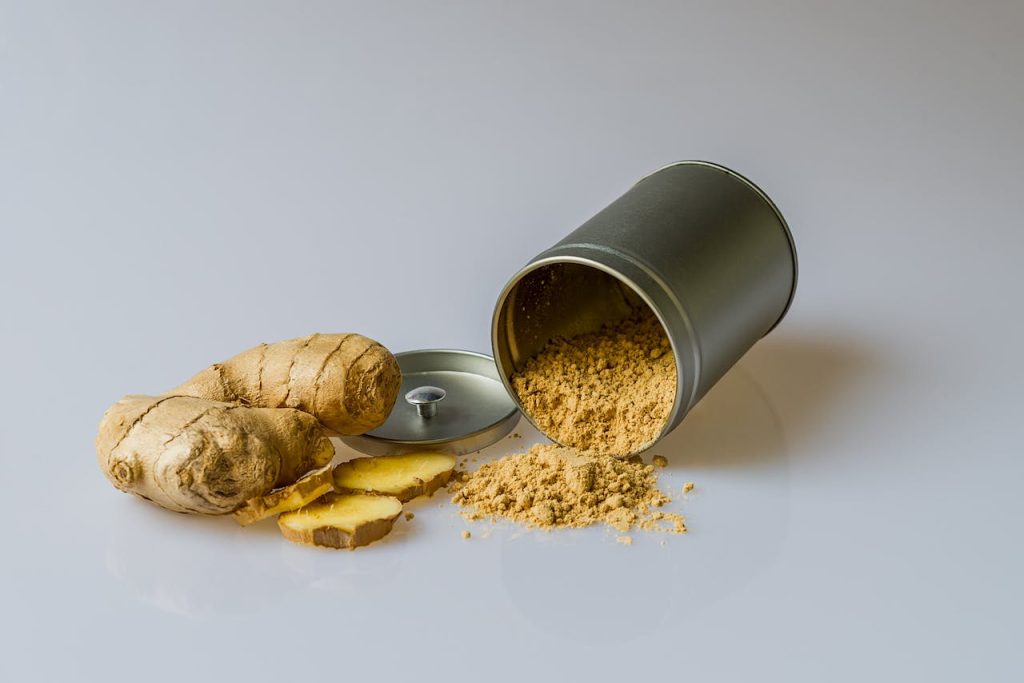
Zesty, peppery, spicy … ginger is one of the world’s favourite spices thanks to a versatile nature that lends itself to both sweet and savoury dishes. There are also numerous health benefits to consider too.
Medicinal properties of ginger include the alleviation of nausea, arthritis and pain, while the two main active compounds, gingerols and shogaols, exhibit a host of biological activities, ranging from anticancer, anti-oxidant, antimicrobial, anti-inflammatory and anti-allergic to various central nervous system activities.
Find out more about why ginger is so good for you in our recent blog.
Mace/nutmeg
Nutmeg trees are the only plant to give us two spices – nutmegs are the actual seeds of the tree while mace is what is known as an airl, a web-like protective coating around the seed.
Nutmeg is delicately warm and sweet, while mace is less sweet, but more pungent and spicier. The pair can be substituted for each other.
Both contain powerful anti-inflammatory plant compounds that may improve improve mood, blood sugar control, and heart health therefore helping with vascular and metabolic health, while mace has been used as a digestive aid.
Mustard seeds
Loaded with vitamins and minerals, mustard seeds are a popular ingredient of Indian and American cuisine. Available in different colours, mustard seeds have a wide range of health benefits and have been used for medicinal purposes for centuries.
Mustard seeds have compounds that can help prevent the growth of cancer-causing cells, while their high magnesium content can help protect from stress.
Nigella seeds
Tiny black seeds with a slightly bitter, pungent flavour, nigella seeds are one of the oldest spices known to man – they were found in Tutankhamun’s tomb and are mentioned in the Old Testament of The Bible.
Often called black onion seeds, they actually have nothing to do with the onion family, but are packed with anti-oxidants that may lower cholesterol and could have cancer-fighting properties.
Paprika/smoked paprika
This colourful spice made from ground red peppers is a much milder version of a chilli powder with a spicy, slightly sweet note. When the peppers are smoked and dried over oak fires, the depth of the flavour is enhanced with added smoky notes.
Research suggests paprika is rich in anti-oxidants, but also high in vitamins and minerals with a teaspoon including 20% of your vitamin A needs, 13% of vitamin E and 9% of vitamin B6. It also has 2 grams of fibre.
Poppy seeds
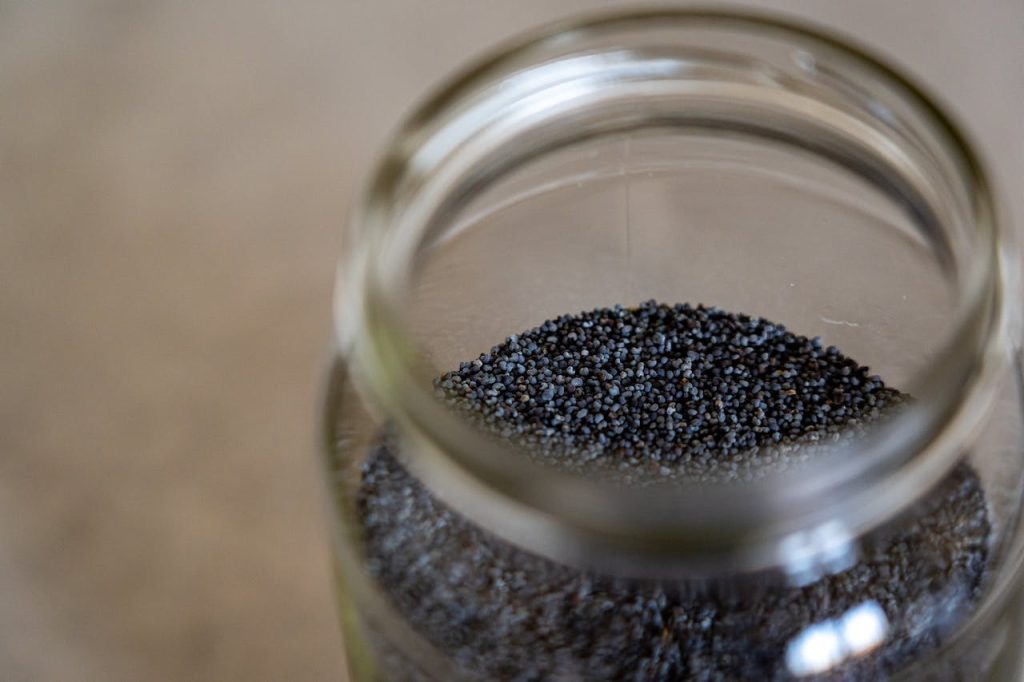
The tiny, kidney-shaped seeds of the opium poppy have been harvested from dried seed pods by various civilisations for thousands of years.
Popular today as an addition to breads and cakes, poppy seeds actually contain very small amounts of opioids – typically store-bought ones have around 0.5 to 10 micrograms of morphine per gram.
A medical dose of morphine meanwhile is between 5,000 and 30,000 micrograms, so unless you have a massive bagel fetish, you’re unlikely to be affected!
There aren’t too many direct scientific studies into their use, but they are traditionally said to help in promoting digestion, boosting skin and hair health, and treating headaches, coughs, and asthma.
Saffron
The world’s costliest spice by weight, saffron is derived from the flower of the crocus sativus. This spice has a sweet floral taste and adds a vivid colour to dishes, while the health benefits of saffron spice are said to be many.
Shown to potentially help brain function by improving mood and treating depression, it is often referred to as the sunshine spice, and may also be beneficial in fighting cancer, reducing PMS symptoms, aiding weight loss and acting as an aphrodisiac.
Star Anise
Not be to be confused with anise, star anise is named for the star-shaped seed pods of the Chinese evergreen tree Illicium verum.
Star anise has a mild flavour not unlike liquorice and contains an impressive source of powerful plant compounds such as linalool, quercetin, anethole and shikimic acid, it has antioxidant, anti-inflammatory and antimicrobial properties.
Turmeric
Part of the ginger family and used to add the yellow colouring to curry, turmeric and the active compound it contains, curcumin, have been shown to have such strong anti-inflammatory properties, they can be bought as a nutritional supplement.
Black pepper helps to make turmeric more bioavailable, or ‘ignite’ these properties further which is why we often use them in combination in Elevated dishes.


